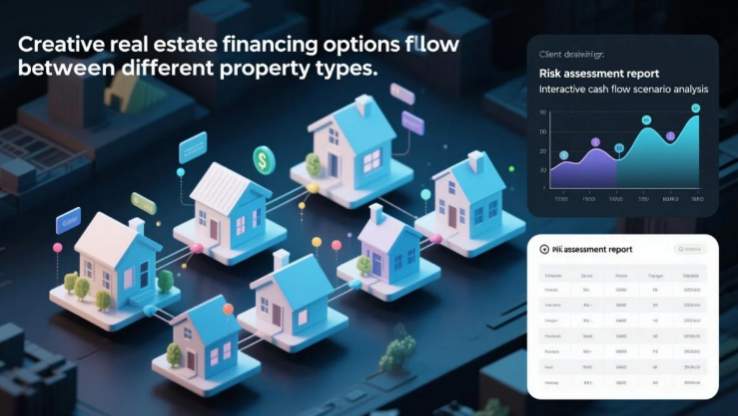The romanticized notion of real estate investing as a guaranteed path to wealth often collides with the complex realities of property ownership, creating a fascinating dichotomy that every potential investor must navigate. While television shows and social media influencers portray effortless cash flow from rental properties, seasoned investors understand that success requires mastering subtle nuances that separate profitable ventures from financial sinkholes. The truth lies somewhere between these extremes, where strategic approaches can transform real estate into genuine passive income while careless investments can indeed become bottomless money pits.
Emerging property technologies are reshaping what passive real estate investing actually means. Fractional ownership platforms and real estate crowdfunding have democratized access to institutional-grade properties while eliminating traditional headaches like tenant management and maintenance calls. These innovations allow investors to build diversified property portfolios with surprisingly small capital outlays, though due diligence remains crucial as not all platforms offer equal quality of opportunities. The most sophisticated investors now combine these digital tools with traditional property analysis methods to identify undervalued markets before they become mainstream destinations.

The hidden operational costs of real estate investing often catch newcomers off guard. Beyond the obvious mortgage payments and property taxes lie less visible expenses like vacancy risk, unexpected repairs, and regulatory compliance costs that can quickly erode projected returns. Smart investors now leverage predictive analytics tools that model these variables with startling accuracy, accounting for everything from local rent control laws to climate change-related insurance premium increases. This data-driven approach reveals why certain properties that appear profitable on surface calculations can become financial burdens when all factors are properly considered.
Creative financing strategies have emerged as game-changers in maximizing cash flow while minimizing personal risk. Techniques like seller financing, lease options, and commercial property syndication allow investors to control valuable assets without traditional bank mortgages. The most successful operators combine these alternative financing methods with tax optimization strategies, particularly cost segregation studies and opportunity zone benefits, to enhance after-tax returns in ways that stock market investments simply cannot match. These advanced tactics require specialized knowledge but can transform marginal deals into exceptional wealth-building vehicles.

The psychological aspects of real estate investing frequently determine success more than financial factors alone. Property ownership demands a unique mindset that balances patience with decisive action, emotional detachment with personal responsibility. Behavioral studies show that the most successful real estate investors share distinct cognitive patterns in risk assessment and opportunity recognition, traits that can be developed through deliberate practice. New neurofinance training programs aim to cultivate these mental frameworks, helping investors avoid common pitfalls like overpaying for emotional appeal or underestimating maintenance requirements.
Geographic arbitrage opportunities created by remote work trends have opened surprising new avenues for property investors. Secondary cities with improving infrastructure and quality of life are attracting knowledge workers fleeing expensive coastal metros, creating rental demand in previously overlooked markets. Savvy investors are using migration pattern data and corporate relocation announcements to identify these emerging hotspots early, often securing properties at substantial discounts before broader market recognition drives up prices. This strategy requires understanding nuanced local dynamics but can yield both strong cash flow and appreciation potential.

The line between passive income and money pit ultimately depends on the investor's willingness to approach real estate as both a business and a science. Those who combine technological tools with market insights, creative financing with disciplined analysis, and emotional control with strategic vision can build genuinely passive income streams. Others risk learning expensive lessons about the hidden complexities of property ownership. In today's environment, successful real estate investing requires neither blind optimism nor excessive caution, but rather a measured understanding of how to systematically mitigate risks while capturing the unique wealth-building potential that only real estate can offer.




